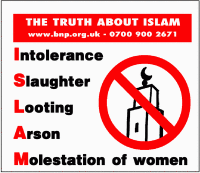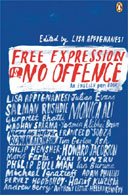 Why Britain needs a religious hatred law
Why Britain needs a religious hatred law
By Murad Qureshi
Morning Star, 21 November 2005
This month anti-racists celebrated the fortieth anniversary of the introduction of the first race relations legislation in Britain.
Among its other provisions, the ground-breaking 1965 Race Relations Act made it an offence to use threatening, abusive or insulting words with intent to stir up racial hatred. However, while the Act marked an important first step in providing legal protection to minority communities from racism, it proved difficult to secure convictions for this particular offence.
In 1968 four members of a far-right organisation calling itself the Racial Preservation Society were prosecuted under the Act after publishing an anti-immigration newsletter in which they warned against “racial mixing” and accused politicians of encouraging “racial levelling.”
Even though the material plainly had the effect of inciting racial hatred, the prosecution was unable to prove that this was what the defendants intended – as was required by the 1965 Act. The defendants claimed that their intention was not to incite hatred but merely to educate the public about the consequences of immigration. As a result, they were acquitted.
In his inquiry into the death of Kevin Gately at an anti-fascist protest in London’s Red Lion Square in 1974, Lord Scarman argued that the racial hatred law needed “radical amendment to make it an effective sanction, particularly in relation to its formulation of the intent to be proved before an offence can be established.”
Subsequent legislation amended the law along the lines proposed by Lord Scarman. Part 3 of the 1986 Public Order Act improves on the original 1965 law by criminalising words and actions that have, or are likely to have, the objective effect of stirring up racial hatred. The 1986 Act allows the defence that the incitement of hatred was not intended, but, rather than the prosecution being required to prove intent, the onus is now on the defendant to demonstrate the absence of intent.
This is hardly a draconian law and, under the 1986 Act, it is still far from easy to mount a successful prosecution for inciting racial hatred. Earlier this year, the Attorney-General stated that, since 1987, when the Act came into force, only 65 people had been prosecuted for inciting racial hatred, resulting in 44 convictions. Indeed, the Commission for Racial Equality has complained that “the evidential test under the Public Order Act is extremely difficult to satisfy.”
A more fundamental weakness in the existing legislation, however, is that Jews and Sikhs are protected against incitement to racial hatred as members of monoethnic religions while multi-ethnic faith groups such as Muslims and Hindus are not.
Continue reading →

 Why Britain needs a religious hatred law
Why Britain needs a religious hatred law In excerpts from a forthcoming book entitled ‘Free Expression is No Offence’, Philip Pullman, Monica Ali, Philip Hensher and Salman Rushdie consider the threat to free speech contained in the government’s Racial and Religious Hatred Bill.
In excerpts from a forthcoming book entitled ‘Free Expression is No Offence’, Philip Pullman, Monica Ali, Philip Hensher and Salman Rushdie consider the threat to free speech contained in the government’s Racial and Religious Hatred Bill. A new clash between the House of Lords and the Commons looks increasingly likely after peers voted overwhelmingly last night to amend the planned law against religious hatred to introduce safeguards protecting freedom of speech.
A new clash between the House of Lords and the Commons looks increasingly likely after peers voted overwhelmingly last night to amend the planned law against religious hatred to introduce safeguards protecting freedom of speech.